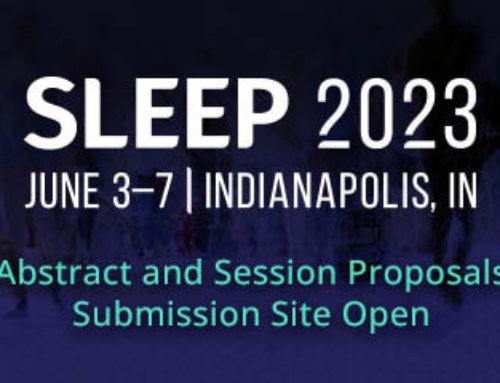WESTCHESTER, Ill. – The majority of patients with narcolepsy/cataplexy experience a number of symptoms of eating disorders, with an irresistible craving for food and binge eating as the most prominent features, according to a study published in the March 1 issue of the journal SLEEP.
The study, authored by Hal Droogleever Fortuyn, MD, and Sebastiaan Overeem, MD, of the Radboud University Nijmegen Medical Center in The Netherlands, focused on 60 patients with narcolepsy/cataplexy who were recruited from specialized sleep centers and 120 healthy controls.
According to the results, 23.3 percent of the narcolepsy/cataplexy patients fulfilled the criteria for a clinical eating disorder, as opposed to none of the control subjects. Half of the patients reported a persistent craving for food, as well as binge eating. Twenty-five percent of patients even reported binging at least twice a week.
“These data make it clear that narcolepsy is not just a sleeping disorder, but a hypothalamic disease with a much broader symptom profile,” said Dr. Fortuyn. “Hypocretin, the neurotransmitter that is lost in narcolepsy, has been implicated in the regulation of feeding through animal studies. Earlier studies in narcolepsy found a clear increase in body weight. However, we did not find a correlation between binge eating and increased weight. Binge eating is apparently not the direct cause of the obesity in narcolepsy, and this suggests that metabolic alterations may be involved. Nevertheless, our study shows that the loss of hypocretin function makes narcolepsy patients not only struggle with staying awake, but also destabilizes their eating pattern, which makes it harder to stay away from the candy jar.”
Narcolepsy is a sleep disorder that causes people to fall asleep uncontrollably during the day. It also includes features of dreaming that occur while awake. Other common symptoms include sleep paralysis, hallucinations and cataplexy. About one out of every 2,000 people is known to have narcolepsy. It affects the same number of men and women.
The American Academy of Sleep Medicine (AASM) offers the following tips on how to get a good night’s sleep:
- Follow a consistent bedtime routine.
- Establish a relaxing setting at bedtime.
- Get a full night’s sleep every night.
- Avoid foods or drinks that contain caffeine, as well as any medicine that has a stimulant, prior to bedtime.
- Do not bring your worries to bed with you.
- Do not go to bed hungry, but don’t eat a big meal before bedtime either.
- Avoid any rigorous exercise within six hours of your bedtime.
- Make your bedroom quiet, dark and a little bit cool.
- Get up at the same time every morning.
Those who suspect that they might be suffering from narcolepsy, or another sleep disorder are encouraged to consult with their primary care physician or a sleep specialist.
SLEEP is the official journal of the Associated Professional Sleep Societies, LLC, a joint venture of the AASM and the Sleep Research Society.
More information on narcolepsy is available from the AASM at https://www.SleepEducation.com/Disorder.aspx?id=5.
SleepEducation.com, a patient education Web site created by the AASM, provides information about various sleep disorders, the forms of treatment available, recent news on the topic of sleep, sleep studies that have been conducted and a listing of sleep facilities.
For a copy of this article entitled, “High Prevalence of Eating Disorders in Narcolepsy with Cataplexy: A Case-Control Study,” or to arrange an interview with an AASM spokesperson regarding this study, please contact Jim Arcuri, public relations coordinator, at (708) 492-0930, ext. 9317, or jarcuri@aasm.org.
# # #








